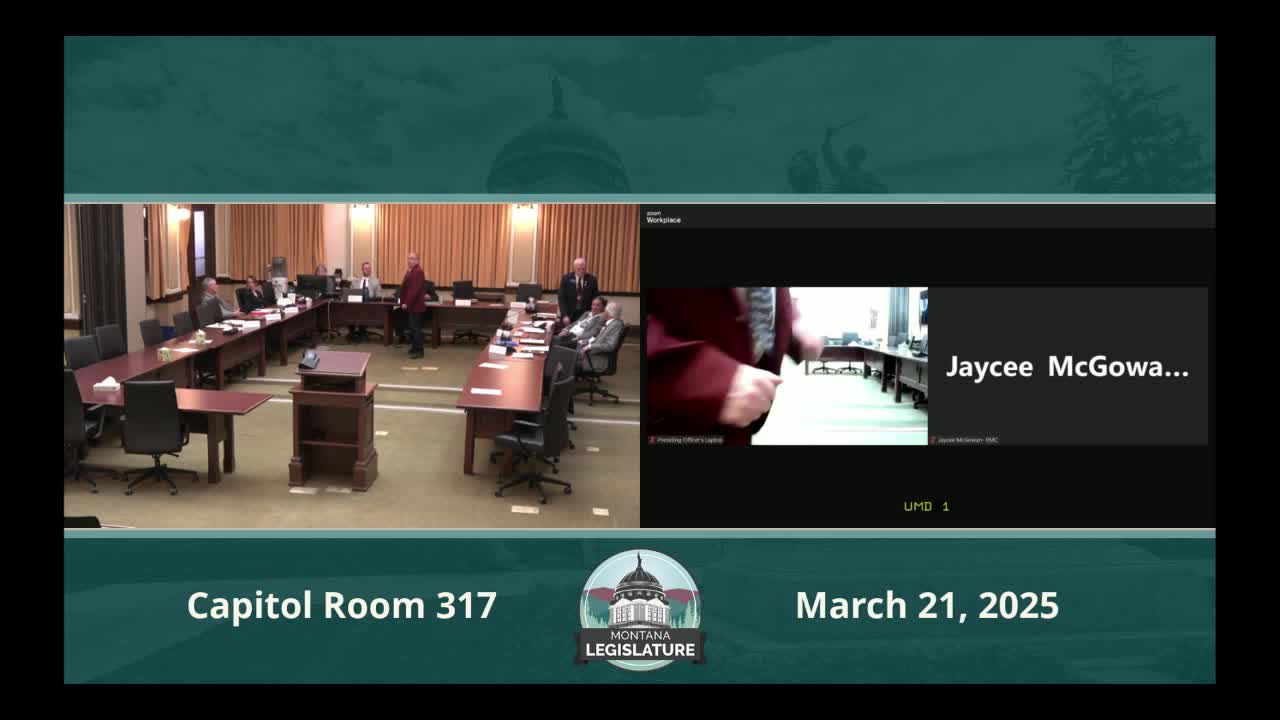House Bill 576 hearing: Legislature considers letting health funds cover waivers, home visiting and early-childhood services
Get AI-powered insights, summaries, and transcripts
Subscribe
Summary
Representative Jane Gillette opened the March 21 hearing on House Bill 576, which would expand permissible uses of two state special revenue accounts so they may support Medicaid waivers and early-childhood services.
Representative Jane Gillette opened the March 21 hearing on House Bill 576, describing the bill as a change to allowable uses of two state special revenue accounts — the tobacco settlement account and the Healthy Montana Kids fund — to permit their use for specific Medicaid waiver and early-childhood programs.
“Again, this isn't this bill is not allocating any funds. It's just giving us the future opportunity to use those funds,” Representative Jane Gillette said, explaining that one affected account is funded by a fee on insurance premiums and has seen a growing balance. She outlined that HB 576 would permit use of the funds for home visiting, the Big Sky waiver, the 0208 waiver (services for individuals with intellectual and developmental disabilities), Part C early intervention services and Family Education and Support (FES).
Proponents from disability-services organizations, health-care associations and providers told the committee the bill would add flexibility to address long wait lists and provide stable funding options if federal funding or Medicaid matching rates change. Cassie Wick of Ability Montana described long waits for the 0208 waiver, saying families can face “like 10 to 14 years” on the wait list if children are not enrolled early; she said delays push parents out of the workforce. (Transcript said "Dylan" when naming a town; the testimony context and local place names indicate the likely reference is Dillon.)
Other witnesses said the Healthy Montana Kids fund has accumulated a substantial balance. Gene Hermanson, Medicaid chief financial manager at the Department of Public Health and Human Services, told the committee the Healthy Montana Kids fund “is expected to have a balance of more than $34,000,000 by the end of this fiscal year” and that HB 576 would allow the department to maximize available funds for the programs listed in the bill.
Representatives of service providers described the bill as a way to shore up long-term sustainability for Medicaid waiver services and to direct state revenue where needs are greatest without changing the portion of tobacco revenue dedicated to prevention. Patrick Madison, CEO of Flathead Industries and president of the Montana Association of Community Disability Services, said HB 576 does not alter the tobacco-prevention allocation and would provide “long term sustainability” and “legislative flexibility.”
No opponents appeared at the hearing. Representative Gillette closed by asking the committee for a “do pass” recommendation. The committee did not take a final roll-call vote at the hearing.
Key program and funding details raised at the hearing will be available for committee consideration if the bill advances.
